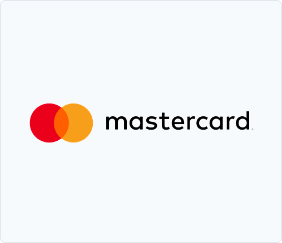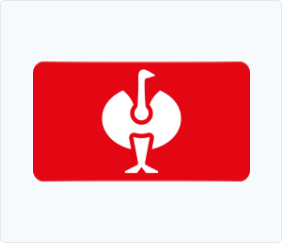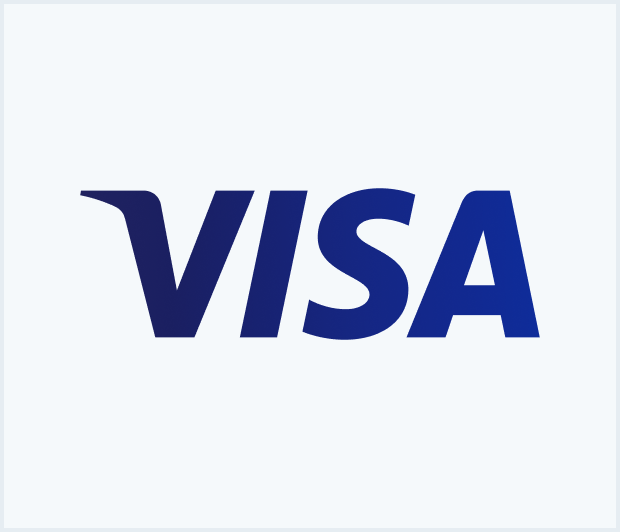How can football change the world
Solidarity trip 2017 to Sri Lanka
FedEx Field in a Box – Cañada Real – Impact one year later
UEFA EURO 2016/Festival 16
UEFA EURO 2016/Festival 16
UEFA EURO 2016/Festival 16
Foundation presentation at UEFA Congress 2019
Biography Andrea Radrizzani

Biography Andrea Radrizzani.
Born September 1, 1974 in Italy, Andrea Radrizzani is a leading entrepreneur who has been at the forefront of the global sports media industry for the past 20 years.
He began his career in sports media in 1999 with digital sports content distributor Media Partners, where he founded its China business. He went on to cofound MP & Silva in 2004, launching the renowned sports media agency’s operations from its headquarters in Singapore and leading its global expansion into 20 countries.
Andrea is the Founder and Chairman of Aser Ventures, a pioneering investment platform specialising in sports, media and technology. He has launched the broadcasting group Eleven Sports. He has also led investments in a number of sports, media and technology companies including Creed Media, Hellodi, Sports Data Labs, Epico and more.
Andrea is the Founder and Chairman of Play for Change – an international charity that uses the power of sport to improve the lives of children around the world.
He holds a bachelor’s degree in Public Relations from IULM University, Milan.
Terms & conditions
The UEFA Foundation for Children - Terms & Conditions
Route de Genève 46
CH-1260 Nyon
Switzerland
contact@uefafoundation.org
Last updated: December 12, 2022
The UEFA Foundation for Children (the "UEFA Foundation", "We", "Our") owns and operates the website https://uefafoundation.org/ including all digital content and functionality contained on it (together the "UEFA Foundation Platform"). Your access to and use of UEFA Foundation Platform is subject to the following terms and conditions and any documents referred to in them (the "Terms & Conditions").
1 - Acceptance of terms
1.1 By accessing, downloading, installing, or using the UEFA Foundation Platform you signify your agreement with and understanding of these Terms & Conditions, which you acknowledge you have read and understood. If you do not agree to these Terms & Conditions, you are not authorised to access the UEFA Foundation Platform.
1.2 When accessing and using the UEFA Foundation Platform and/or any specific content or material on it, additional guidelines or rules may apply which are relevant to (and communicated on or within) the UEFA Foundation Platform (in addition to any supplemental provisions that may be incorporated in these Terms & Conditions). To the extent that there is any inconsistency between these Terms & Conditions and any such guidelines or rules, the guidelines or rules shall prevail.
1.3 We reserve the right to change these Terms & Conditions at any time. You must review these Terms & Conditions on a regular basis to keep yourself informed of any changes. Continued use of the UEFA Foundation Platform following any such changes shall constitute your acceptance of such changes.
2 - Content
2.1 All information, data, text, software, music, sound, photographs, graphics, video, messages, feeds and any other material on the UEFA Foundation Platform (the “Content”) provided by the UEFA Foundation is owned by or licensed to the UEFA Foundation. Content provided by the UEFA Foundation is provided to you "AS IS" and may not be used, reproduced, distributed, transmitted, broadcast, displayed, sold, licensed or otherwise exploited for any other purposes than your personal access and viewing of the Content on the UEFA Foundation Platform. For that sole and exclusive purpose, the UEFA Foundation grants to you a limited, revocable, non-exclusive license to access and use the UEFA Foundation Platform privately for non-commercial purposes, in accordance with these Terms & Conditions.
2.2 The UEFA Foundation Platform may contain links or feeds from or to other websites or resources. The UEFA Foundation has no control over such sites and resources and is not responsible or liable for, any content available on such sites or resources.
2.3 In the event that you wish to establish a link to the UEFA Foundation Platform, you expressly agree: (i) not to include the UEFA Foundation Platform into the frame of another website; (ii) not to create any third party association with the UEFA Foundation Platform or the UEFA Foundation itself; (iii) to properly attribute the UEFA Foundation Platform referred to in your link to the UEFA Foundation; and (iv) to ensure that the link does not state nor imply that the UEFA Foundation approves of, sponsors or endorses any other website activity, company, resource or entity carried out by you or a relevant third party, or presents the UEFA Foundation and/or its activities in a false, misleading, defamatory or derogatory manner or otherwise damages the UEFA’s Foundation reputation or takes advantage of it.
2.4 The UEFA Foundation reserves the right to require you at any time to remove any link to the UEFA Platform.
3 - Trademarks and copyright information
3.1 The UEFA Foundation logo, together with UEFA Foundation names are trademarks and copyright material of the UEFA Foundation ("UEFA Foundation Marks").
3.2 Nothing in the UEFA Foundation Platform is designed to grant any licence or right to use any UEFA Foundation Marks or Content to you other than expressly detailed in these Terms & Conditions.
3.3 The UEFA Foundation respects the intellectual property rights of others. If you believe that any of your intellectual property rights have been infringed on the UEFA Foundation Platform, please provide the UEFA Foundation with the relevant information by emailing: contact@uefafoundation.org.
4 - Changes to the UEFA Foundation Platform
The UEFA Foundation reserves the right at any time to modify or discontinue, temporarily or permanently, the UEFA Foundation Platform, including any Content with or without notice. The UEFA Foundation shall not be held liable to you or to any third party for any such modification, suspension or discontinuance. Although the UEFA Foundation will make reasonable efforts to keep the UEFA Foundation Platform up to date, the UEFA Foundation has no obligation to you to do so.
5 - Privacy
5.1 The UEFA Foundation may use information it collects in relation to your use of the UEFA Foundation Platform to support and improve it (through user insights, reporting and profile building, in order to optimise the relevance of Content on the UEFA Foundation Platform to you).
5.2 By accessing or using the UEFA Foundation Platform you acknowledge and agree that the terms of the UEFA Foundation’s Privacy Policy shall apply.
6 - Disclaimer
6.1 If you access and use our UEFA Foundation Platform, you do so at your sole risk. The UEFA Foundation Platform, and the UEFA Foundation’s Content is provided on an "as is" and "as available" basis. The UEFA Foundation makes no representation that material on the UEFA Foundation Platform is appropriate or available for use in any specific jurisdiction. You are responsible for your compliance with all local laws and regulations in the jurisdiction in which you access the UEFA Foundation Platform. The UEFA Foundation expressly disclaims all warranties of any kind, whether express or implied, including, without limitation, implied warranties or merchantability, fitness for a particular purpose and non-infringement.
6.2 The UEFA Foundation makes no warranty or representation that: (i) the UEFA Foundation Platform (including any UEFA Foundation’s Content) will meet your expectations; (ii) the UEFA Foundation Platform or the UEFA Foundation’s Content will be uninterrupted, timely, secure, or error-free; and (iii) any errors in the Content will be corrected.
7 - Your indemnity
You agree to indemnify and hold the UEFA Foundation, its subsidiaries, affiliates, licensors, licensees, officers, agents, co-branders and other partners, and employees, harmless from any and all liabilities, losses, damages, claims, penalties, fines, costs and expenses, including without limitation reasonable legal fees, that may arise in connection with your failure to comply with any provision of the Terms & Conditions.
8 - Limitation of liability
The UEFA Foundation may, in its sole discretion and without liability to you, with or without cause, in particular if you do not comply with these Terms & Conditions, with or without prior notice and at any time terminate your access (whether restricted or not) to the UEFA Foundation Platform.
9 - Termination
The UEFA Foundation may, in its sole discretion and without liability to you, with or without cause, in particular if you do not comply with these Terms & Conditions, with or without prior notice and at any time terminate your access (whether restricted or not) to the UEFA Foundation Platform.
10 - Notices
If We amend these Terms & Conditions, we shall place an updated version on the UEFA Foundation Platform.
11 - General Provisions
11.1 These Terms & Conditions (including the specific terms applicable to certain services) constitute the entire agreement between you and the UEFA Foundation in relation to their subject matter, superseding and extinguishing any prior agreements, arrangements, undertakings of any nature, between you and the UEFA Foundation, whether oral or written in relation to such subject matter.
11.2 Any failure by the UEFA Foundation to exercise or enforce any right or provision of the Terms & Conditions shall not constitute a waiver of such right or provision.
11.3 If any provision of the Terms & Conditions is found to be invalid, you acknowledge and agree that the other provisions of the Terms & Conditions shall remain in full force and effect.
11.4 You may not assign or transfer any of your rights or obligations, or subcontract the performance of any of your obligations, under these Terms & Conditions. The UEFA Foundation may assign or transfer any right or obligation, or subcontract the performance of any of its obligations, under these Terms & Conditions to any third party at any time without notice to you
11.5 These Terms & Conditions are drafted in English and may be translated in other languages. In the event of any discrepancy between the English and any translated text, the most recent English edition (indicated by the date at the bottom of this page) shall prevail and be used as the basis to solve any doubts of interpretation.
12 Applicable Law and Jurisdiction
The Terms & Conditions and the relationship between you and the UEFA Foundation shall be governed by the laws of Switzerland. All disputes in connection with these Terms & Conditions shall be submitted to the exclusive jurisdiction of the courts of Nyon, Switzerland.
External documents
The United Nations and children’s rights
- Convention on the Rights of the Child
- Optional Protocol to the Convention on the Rights
of the Child on the involvement of children in armed conflict - Optional Protocol to the Convention on the Rights
of the Child on the sale of children, child prostitution and child pornography - Convention on the Rights of Persons with Disabilities
- The 17 Sustainable Development Goals of the UN Department of Economic and Social Affairs
Council of Europe
UNICEF
FAQs
When, how and by whom was the UEFA Foundation for Children established?
On 26 March 2014, at the 38th Ordinary UEFA Congress in Astana, the UEFA President, Michel Platini, stressed UEFA’s desire to enable more people to benefit from football’s role in society. With the support of the UEFA Executive Committee and the approval of UEFA’s member associations, he announced the creation of the UEFA Foundation for Children, declaring:
This foundation will help us […] to preserve the magic of football and give hope to those children who need it most. This is a great project […] and a cause that is particularly close to my heart.
The UEFA Foundation for Children was established in 2015.
What is the legal status of the UEFA Foundation for Children and how is it organised?
The UEFA Foundation for Children was set up in early 2015 on the initiative of UEFA. The foundation is registered in Nyon (Switzerland) as a non-profit organisation and is governed by Swiss law.
It is managed by its Board of Trustees and acts in the interests of its direct beneficiaries.
The UEFA Foundation for Children is supervised by the Swiss federal supervisory board for foundations, which is attached to the general secretariat of the Swiss federal department of home affairs.
I am a private individual and I need help financing a project. Can you help me?
Unfortunately, the UEFA Foundation for Children does not provide any financial assistance or assistance in kind to private individuals. It carries out projects in specific countries in partnership with specific non-profit organisations.
What do your activities on the ground consist of?
In the case of all projects, regardless of the context (including crisis situations and development projects), the UEFA Foundation for Children works in support of specific partner organisations, placing children right at the heart of its strategy. Partner organisations are required to ensure that the beneficiaries of those projects (i.e. children and their families) gradually take responsibility for their own development.
Wherever possible, the foundation makes use of existing networks within the countries in question (local aid organisations, regional or government bodies, etc.), giving financial support to those organisations in order to help them to act. Different types of partnership are established with those organisations in order to achieve the foundation’s objectives.
Moreover, projects that are supported/financed by the foundation are subject to quality standards, which means that they are assessed and have to comply with the foundation’s Ethics Code.
How do you ensure that funds given to you are used in an appropriate manner? Can I donate money to you with complete confidence?
The foundation is committed to achieving its objectives in a manner befitting a charitable organisation.
Our objective is to help disadvantaged children. We are establishing and developing assessment mechanisms to evaluate all initiatives that are financed/supported by the foundation and ensure that they are consistent with the values set out in the foundation’s Ethics Code.
The foundation’s accounts are audited by an independent body and published on its website every year.
The UEFA Foundation for Children is also supervised by the Swiss federal supervisory board for foundations. That public body, which is responsible for the supervision of foundations on behalf of the federal government, operates at both national and international level. Its supervisory activities are essentially based on the case law of Switzerland’s Federal Supreme Court regarding Article 84(2) of the Swiss Civil Code: “The supervisory authority ensures that the foundation’s assets are used for the intended purpose.”
Who are the beneficiaries of the UEFA Foundation for Children?
The UEFA Foundation for Children seeks to help disadvantaged children – children who need help as a result of physical, mental or psychological problems, because of their social environment, or on account of a crisis situation linked to armed conflict or a natural disaster.
How does the UEFA Foundation for Children define the term ‘child’?
The UEFA Foundation for Children applies the definition set out in the United Nations Convention on the Rights of the Child.
Etymologically, the word ‘infant’ comes from the Latin ‘infans’, which denotes someone who does not speak. In Roman times, this term was used to refer to anyone under the age of seven. The concept of childhood has evolved considerably over the centuries, as well as varying across cultures, and the word ‘child’ is now used to refer to anyone who has not yet reached adulthood. However, that remains a broad concept, and the age at which people are deemed to become adults varies from culture to culture.
The United Nations Convention on the Rights of the Child, which was adopted in 1989, defines the term ‘child’ more precisely as:
Every human being below the age of eighteen years unless under the law applicable to the child, majority is attained earlier.
What is the United Nations Convention on the Rights of the Child?
The United Nations Convention on the Rights of the Child is an international agreement that was adopted by the United Nations General Assembly on 20 November 1989.
It specifically stipulates that children’s rights and best interests must be respected, and it was the first legally binding international agreement to confer fundamental rights on children.
How can I request support from the UEFA Foundation for my project?
The UEFA Foundation aims to help children and safeguard their rights. Sport, and football in particular, can provide support in the areas of health and children’s education, as well as promoting access to sporting activity, facilitating children’s personal development and fostering the integration of minorities.
Therefore, UEFA Foundation launches each year a “Call for Project” through this website. The next Call will take place in June/July 2023. Find all the information on how to apply here.
How can my child apply to be a player mascot?
All of the UEFA Foundation’s mascots are local children, depending on the location, for each game, who are part of the foundation’s child support programmes.
Official competition sponsors coordinate the registration of the children. (Mastercard, Fedex, Engelberg Stauss and Just Eat Takeway.com)
Charter of the UEFA Foundation for Children
Jobs
The UEFA Foundation for Children’s staff and volunteers work with our partners on humanitarian and development programmes that help children.
Employment opportunities are published on UEFA’s job portal:
https://www.uefa.com/insideuefa/careers/job-opportunities/
We have no vacancies at the moment.
Call for projects
Through the call for projects, we are working to promote the fundamental rights of vulnerable children all over the world.
We welcome applications from any organisation that shares the values of the UEFA Foundation for Children and proposes practical measures to help children in the following areas:

Access to sport

Personal development

Disabled children

Healthy lifestyle

Conflict victims

Gender equality

Environmental protection

Employability

Infrastructure and equipment

Strengthening partnerships
The foundation’s support is not limited to projects in Europe.
Our core aims are solidarity and development aid, rooted in respect for the ethical values that we share with our partners.
Successful projects must also meet certain criteria set out by the board of trustees.
Selection process
The UEFA Foundation for Children examines and evaluates every project submitted.
The board of trustees takes a final decision on the selection of projects at its autumn meeting in accordance with the Statutes.
Candidate registration platform
Call for projects 2025 is closed.
Our supporters
UEFA serves as the founding entity and principal financial supporter of the UEFA Foundation for Children. In this role, UEFA not only initiated the creation of the foundation but also appointed the first members of its board of trustees, ensuring strong governance and alignment with its mission to promote solidarity and improve the lives of children worldwide through football.
The foundation surrounds itself with individual and institutional supporters, including friends, donors and commercial sponsors.
FRIENDS OF THE FOUNDATION
A ‘friend of the foundation’ is an individual or institution who has demonstrated a particular attachment to the foundation’s cause, whether through their actions, connections or contributions. This status is conferred by the board of trustees.
- Margarita Louis-Dreyfus was made a friend of the foundation on 3 November 2025.
DONORS
A donor is any individual or institution who helps the foundation to achieve its objectives by making a one-off donation or contribution or by leaving a bequest.
SPONSORS
Today, thanks to the growing importance of corporate social responsibility in economic and political life, our foundation’s activities and projects are starting to resonate with numerous new public and private partners who support us financially. The sponsors of UEFA competitions, already involved in the football side of things, are increasingly keen to add a social dimension to their activities.



























